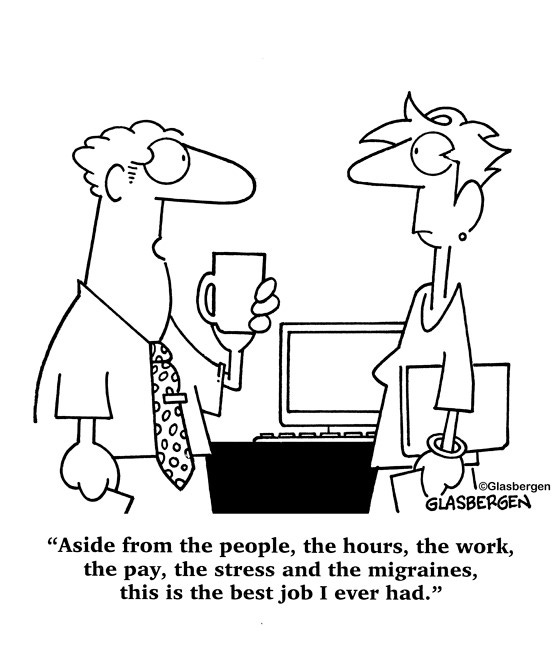The "Problem" with Being Human …and the Most Important Power Skill for Managers and Leaders
In this issue: ChatGPT3 and the Age of Overwhelm/Managers Have Major Impact On Mental Health: How To Lead For Wellbeing / For Teams, What Matters More: Raw Talent or a History of Success Together?/ The Lighter Side of Work
Why you’re getting this:
I'm Andrea J. Miller and this is my “On Leading Well” Newsletter. I send this to people in my networks, people I’ve met recently, and friends I want to keep in touch with. You can unsubscribe (SEE THE VERY BOTTOM OF THE EMAIL) anytime, I won’t be offended
The Problem with Being Human …and the Most Important Power Skill for Managers and Leaders
Recently, I had a painful reminder of just how little control we have over life.
I broke my nose.
To put it bluntly, I was a bloody mess…
One ER trip, a black eye, and a whole lot of calling to doctors and my insurance plan (see my LinkedIn article for more on that and why I believe our health system is set for disruption), I’m on the mend, at least on the outside.
This isn’t my first trip to the ER or challenging experience.
Here’s the quick recap: over a 5-year period I had 3 surgeries, while helping to manage end-of-life care for both parents, and just to keep things interesting, I was also hit by a car (you can’t make this stuff up!)
So, I wasn’t surprised that this fall and subsequent trip to the ER brought up some old trauma and anxiety.
One of the “benefits” of having been through so much is that I can recognize the signs and for the most part know how to manage them.
What I’ve also learned from these experiences is that it’s a skill set that many people often lack, and, more importantly, when they’re going through these difficult moments, it can make the people around them very, very uncomfortable.
And yet, to varying degrees, particularly since COVID whether we choose to admit it or not, we’ve all gone through or are going through such times.
It’s part of being human.
For the world of work, this means that compassion and emotional intelligence are now or at least should be part of a manager and leader’s job description.
Compassion, the Next Power Skill
One of the few good things to come out of the pandemic is that we’ve finally begun to normalize and have conversations about mental health.
A few years ago, I would’ve never written this article because of how it might be perceived…but, thankfully things are changing.
More people are able to acknowledge when they need support, which is not only okay but beneficial to them as well as the people around them.
It’s a much-needed and long-overdue shift.
While silence may feel safer and more expedient, it can also be harmful.
Whether companies recognize it or not, when we go to work, we bring with us whatever is going on at home and vice versa.
Emotions are contagious.
And this impacts everyone.
Though we vary in our levels of susceptibility to the emotions of others, studies have shown that we tend to copy those around us.
Their motions and behaviors can be spread through facial expressions, voice, posture, movements, and other actions.
For example, when someone smiles happily, those around them are more likely to smile and feel happy.
As the psychologist and writer Harriet Lerner said, Anxiety is contagious. Intensity and reactivity only breed more of the same. Calm is also contagious. Nothing is more important than getting a grip on your own reactivity.”
My somewhat, long-winded point is that our wellbeing not only has implications for us but for the people, we work with as well.
The most successful organizations understand this.
They know that healthy people create healthy teams and healthy teams lead to healthier, more resilient organizations.
This is why they know they need to invest in creating cultures to foster this, which means setting an example at the very top of the organization with leaders and managers who model this behavior.
Leaders and Managers in Healthier Organizations :
1. Support employee mental health and well-being
2. Enable employees to be more productive
3. Create a workplace culture that respects and involves all employees, including those with mental health needs; and
4. Encourage employees to seek help for mental health problems.
—
RECOMMENDED LISTENS, READS And other interesting things
Managers Have Major Impact On Mental Health: How To Lead For Wellbeing
Leaders have a critical role to play in contributing to the conditions for positive mental health—their own and others’. Here are the most impactful approaches.
For Teams, What Matters More: Raw Talent or a History of Success Together?
A study of professional sports teams suggests that one factor is clearly more important, but the best teams combine them both.
—
The Lighter Side of Work
—
Executive Coaching Office Hours (EXCLUSIVE FOR READERS)
Ask me ANYTHING leadership, career or wellbeing-related for free, 1-on-1 (REALLY)
Click the link to schedule a time.
—
Are there any other subjects you want me to cover? Hit “Reply” and tell me!
I love hearing from you :)!
—
If you enjoyed this newsletter, please forward to a friend (or 5 :) or someone you feel would benefit from reading it!
Andrea J. Miller
+1 (646) 556-5401 (Whatsapp)




